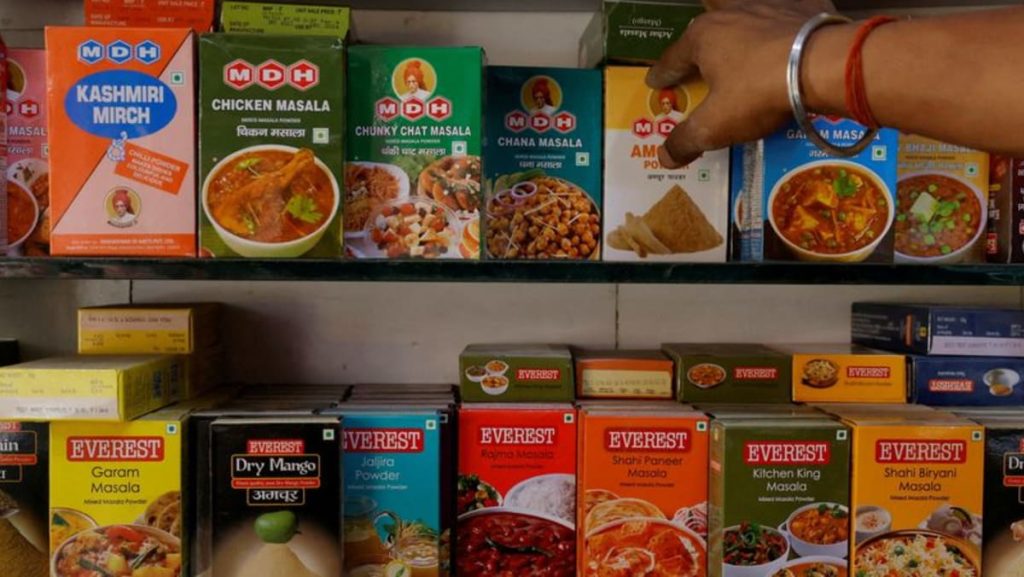The Indian food safety regulator has ordered nationwide testing and inspections at all companies making spice mixes in response to global concerns about contamination in two popular local brands, MDH and Everest. Hong Kong and Singapore have suspended sales of certain products due to high levels of ethylene oxide, which is considered unfit for human consumption and a cancer risk with prolonged exposure. Despite claims of safety from the companies, US and Australian authorities are also investigating the issue. India had previously ordered testing of the two brands’ products and is now expanding the scope to include all powdered spices.
The Food Safety and Standards Authority of India has instructed officials to conduct extensive inspections, sampling, and testing at all manufacturing units producing curry powders and mixed spice blends for both local and foreign sales. Each product sampled will be analyzed for compliance with quality and safety parameters, including the presence of ethylene oxide, which is banned in India. The agency will take appropriate actions based on the results of the testing, as necessary. India is a major player in the global spice market, being the largest exporter, producer, and consumer of spices with a domestic market value of US$10.44 billion in 2022.
Aside from MDH and Everest, other major spice manufacturers in India include Madhusudan Masala, NHC Foods, and consumer giants Tata Consumer Products and ITC. The crackdown on spice mixes is significant for the industry in India, as these products are widely popular not only in domestic markets but also in Europe, Asia, and North America. The situation has caught the attention of global regulators, leading to increased scrutiny and testing of these products to ensure their safety and compliance with quality standards. The issue highlights the challenges faced in ensuring food safety across international markets, especially when products are exported to multiple countries with varying regulations and standards.
Ethylene oxide is a chemical compound that is commonly used as a pesticide, fumigant, and sterilizing agent. In the context of food safety, its presence in spice mixes is considered a serious concern due to its potential health risks, including cancer. The use of ethylene oxide is banned in India, and any detection of this substance in food products can lead to severe consequences for the manufacturers involved. The ongoing investigations and testing are crucial in determining the extent of contamination and taking appropriate actions to ensure the safety of consumers both in India and overseas.
The spice industry in India plays a significant role in the country’s economy, generating substantial revenue and providing employment opportunities for many people. The recent contamination issues with MDH and Everest brands have raised alarms about the need for stricter enforcement of food safety standards and regulations to protect consumers and maintain the industry’s reputation. It is essential for all stakeholders, including manufacturers, regulators, and consumers, to work together collaboratively to address these challenges and ensure the quality and safety of food products. By conducting thorough inspections and testing, authorities can identify potential risks and take prompt actions to prevent any harm to public health.
In conclusion, the widening crackdown on spice mixes in India reflects the growing concerns about food safety and the need for stronger regulation and oversight in the industry. The global attention on contamination issues with MDH and Everest brands underscores the importance of maintaining high standards in food production and ensuring compliance with safety regulations. As authorities continue to investigate and test these products, it is crucial for companies to prioritize the safety of their consumers and take necessary steps to address any issues that may arise. By working together to uphold food safety standards, the spice industry in India can regain consumer trust and preserve its reputation as a key player in the global market.













